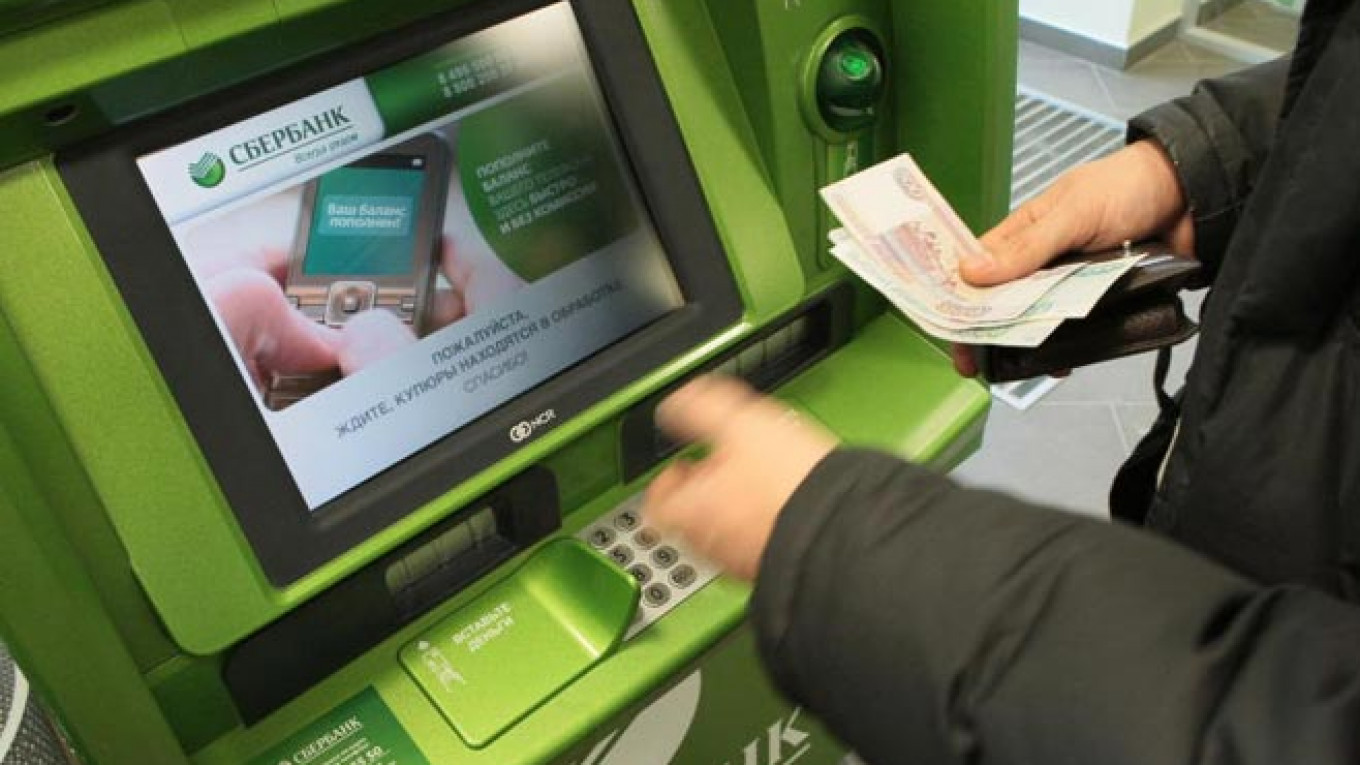As top government officials speed up the birth of a national credit card system in an asymmetrical response to U.S. sanctions over Russia's incorporation of Crimea, major state banks are eyeing their share in the multi-billion dollar financial transactions market.
President Vladimir Putin has supported German Gref, the CEO of Russia's largest lender Sberbank, who offered to create a national payment system based on the existing Universal Electronic Card, or UEC.
Putin ordered the prime minister to review all the possibilities of using the UEC, followed by a corresponding decree of the Cabinet to the key ministries. Officials are to report of the results of their evaluations by mid-April, Kommersant reported Thursday.
The UEC started to be issued to Russian citizens beginning from 2013 and initially was meant to replace the existing internal passport. Besides carrying all the necessary personal data, it is possible to make payments with the card as with a regular plastic. About 300,000 of these cards, powered by Sberbank's PRO100 payment system, have been issued so far and they are accepted by most cash machines and acquiring terminals across the country.
Top government officials have repeatedly said the national payment system was a must-have as a necessary means of security against sudden malfunctions of international payment systems.
At the end of March, Visa and MasterCard stopped providing services for payment transactions for the clients of Bank Rossiya and SMP bank, co-owned by brothers Boris and Arkady Rotenberg, allegedly Putin's close allies. The taken measure was reportedly part of U.S. sanctions against the Russian annexation of Crimea.
"National payment systems exist in many countries and Russia should think of one as well," said German Gref following the incident, adding that Sberbank has own system that is up to the task. He said the system could be applied across the country within several months after adjusting legislation.
Currently, Visa and MasterCard take up, respectively, 60 and 35 percent of Russia's credit card market, which according to the Central Bank saw almost 26 trillion rubles ($740 billion) worth of transactions in 2013.
While Sberbank's offer to take the burden of securing the nation's payments found support with the president, it was not backed by the Central Bank and other state banks.
The regulator made a counter offer to lead a partnership with banks and payment systems, including foreign ones, Vedomosti reported Thursday.
The initiative has been supported by state-owned bank VTB24.
"A national payment system should resemble a commercial organization, led by the Central Bank, with several hundred banks participating as equal partners," said VTB24 CEO Mikhail Zadornov in an interview with Rossia 24 television channel.
Domination of any single bank in the partnership would meet expected resistance, he added.
The key task, Zadornov said, was to combine payment systems of several largest banks into one network, adding that VTB24 is offering such a partnership to Sberbank and several other major financial institutions.
"Even if Visa and MasterCard, the main systems working in Russia, stop servicing any bank, credit cards would still work within the country," Zadornov said.
He also said that a national payment system would not work outside Russia and the banking community is currently working on the ways to solve this inconvenience, not elaborating, however, on specifics.
"We assume that a Russian commercial credit card system will service inner financial transactions and will use international payment systems for operations abroad," said Alexander Rakov, a spokesman for National Payment Council, a nonprofit organization established to promote the development of the national payment system.
Rakov also said that after the system is set up, holders of cards tied to international payment systems like Visa and MasterCard should not have any trouble with transactions within Russia.
It was not clear whether the new system would increase the cost of transactions.
National payment systems exist in the U.S., Japan and China. Currently, China's UnionPay leads with the number of issued cards, which exceeds 3.5 billion. The American Express has the most turnover, with revenues totaling $33 billion in 2013.
Contact the author at [email protected]
A Message from The Moscow Times:
Dear readers,
We are facing unprecedented challenges. Russia's Prosecutor General's Office has designated The Moscow Times as an "undesirable" organization, criminalizing our work and putting our staff at risk of prosecution. This follows our earlier unjust labeling as a "foreign agent."
These actions are direct attempts to silence independent journalism in Russia. The authorities claim our work "discredits the decisions of the Russian leadership." We see things differently: we strive to provide accurate, unbiased reporting on Russia.
We, the journalists of The Moscow Times, refuse to be silenced. But to continue our work, we need your help.
Your support, no matter how small, makes a world of difference. If you can, please support us monthly starting from just $2. It's quick to set up, and every contribution makes a significant impact.
By supporting The Moscow Times, you're defending open, independent journalism in the face of repression. Thank you for standing with us.
Remind me later.






